Formulation benefits
*according to ISO TS19657
Taste improvement, a growing challenge!
As consumers consider many new factors when purchasing food, the importance of taste remains intact. Compromising on taste is hardly an option. When it comes to taste improvement, the food and beverage industry has many challenges to face that require expertise. They need to meet customer expectations by providing specific flavor notes, increasing the overall richness of a food application and maintaining an appetizing taste while reducing the level of certain ingredients such as sugar or salt.
Taste, a multifactorial sense

Taste and flavors are the result of what our tongue and nose perceive when we eat or drink. Both send information to our brain, which will analyze the data, helping us to characterize tastes and flavors of the foods we are eating.
There are five basic tastes known: saltiness, sweetness, bitterness, sourness, and umami. Each one is linked to one reference molecule. The first four are well-known and have been described for centuries. Umami taste was discovered in 1908 by a Japanese researcher while tasting dashi broth, a traditional broth made from Kombu seaweed. It was only scientifically recognized as the fifth basic taste in the 1980’s. Umami literally translates “savory taste” from Japanese and refers to a lingering taste that stimulates salivation.
A new taste concept has been recently discovered in the field: kokumi. It refers to the attributes of slow cooking or home-made cuisine. “Richness”, “mouth fullness” and “smoothness” are commonly used to describe the kokumi sensation.
Taste and flavors are complex to describe and require specific expertise to improve. Experts have divided taste into three building blocks:
- Flavor bases serve as the foundation for the taste profile
- Specific flavor notes characterize the recipe
- Top notes consist of sharp aromas that come initially when tasting and dissipate quickly.
Umami and kokumi bring out all the other flavors and highlight the overall profile.
Taste improvement: a strong expertise at Biospringer
Due to its natural complex composition, yeast extract is a great tool to build complete taste profiles, by bringing out flavor notes. It is also used to reduce and remove specific ingredients for clean label or nutritional purposes.
Our culinary and sensory experts are dedicated to help solve your needs and select the right ingredients and dosages, guided by their strong understanding of taste improvement.
Our wide range of yeast-based solutions will allow you to:
- Reveal taste: our Springer ® Reveal yeast extract range serve as flavor bases to offer taste intensifying properties due to their naturally rich components.
- Provide richness: due to the natural nucleotide content, our Springer ®Umami range provides umami taste. It increases the overall flavor impact and creates a well-rounded effect. It is also very useful for other benefits such as salt reduction or masking off-note.
- Increase smoothness with Springer® Cocoon, by providing a deep full-flavored and mouthfeel to your food applications.
- Bring a signature taste: our Springer ® Signature line delivers specific flavor notes with various aromatic profiles, from meaty to vegetable or even cheesy notes.

Fat reduction
impacting taste and texture
Lipids are essential components of a living cell. However, a high fat intake can lead to obesity and increase the risk of heart diseases. Food manufacturers are encouraged to reformulate processed foods to reduce fat content.
Fat components play an important role in building balanced taste profiles and appealing textures. The reduction of fat can result in a loss of taste and texture.
Bring back taste and texture with yeast extract in low-fat foods
To bring back a long-lasting roundness sensation in reduced-fat food, Biospringer offers a range of yeast extracts that show real benefits, in terms of flavor and creaminess improvement. Yeast extract compensates for the reduced flavor sensations in various foods: dairy products, sweet products, sauces & dressings and more.
Springer ® Cocoon range provides body and richness to a 30% low-fat granola, and maintains the freshness and creaminess of a low-fat cream cheese.
The Biospringer Culinary Center has demonstrated a reduction of fat by 30% using Biospringer yeast-based ingredients while maintaining appetizing organoleptic profiles.
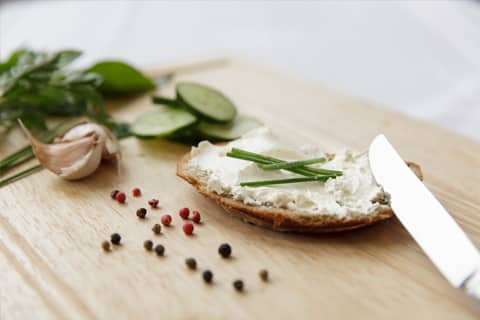
Salt reduction,
an ongoing challenge
Salt reduction is one of the top 10 trends in healthy foods. The World Health Organization (WHO) Member states have agreed to reduce the global salt intake by 30%, before 2025. Food manufacturers are strongly encouraged to lower the sodium content of processed foods, which are high in salt. The reduction of salt without compromising the taste is a challenge.
How yeast extracts contribute
to salt reduction
Biospringer’s expertise offers yeast extract ranges with many taste properties to support the development of reduced sodium food and beverage products.
- Springer ® Umami is naturally rich in nucleotides to provide umami taste and a long-lasting effect, intensifying the other tastes and flavors.
Biospringer Culinary Center’s expertise in product formulation and yeast extracts will help you reduce salt up to 30% in a variety of foods and beverages: soups & broth, sauces & dressings, snacks & seasonings and more.
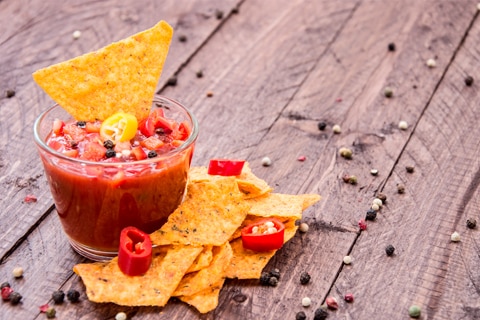
Sugar Reduction,
an urgent matter
The increase of excess weight and obesity has raised awareness among policy makers and consumers worldwide about the dangers of sugar. However, consumers are accustomed to sweetness. Food manufacturers have a great challenge to overcome: delivering sweetness while reducing the sugar content. Food manufacturers must rethink their formulas to deliver a satisfying taste while reducing sugar in foods and beverages.
Yeast extract,
a valuable ingredient in sugar reduction
Biospringer’s Culinary Center’s expertise in food formulation and yeast extracts can support the development of reduced-sugar foods, up to 30 %, without compromising on taste.
Biospringer ranges offer various benefits that intensify sweetness or allow sugar reduction by bringing specific flavor notes.
Yeast extract contributes to sugar reduction in many food applications such as sauces & dressings, dairy products, sweet products and more.
- Springer ® Umami will bring an umami and roundness sensation, while Springer ® Reveal will intensify the sweetness, allowing a sugar reduction of 20% in tomato sauce.
- In chocolate cookies, Springer ® Signature range brings specific cacao and roasted flavors notes, leading to a sugar reduction of 30%.
The Biospringer Culinary Centers can help you find the right combination of ingredients that will deliver a sweetness sensation and bring taste specificity for a well-balanced product.
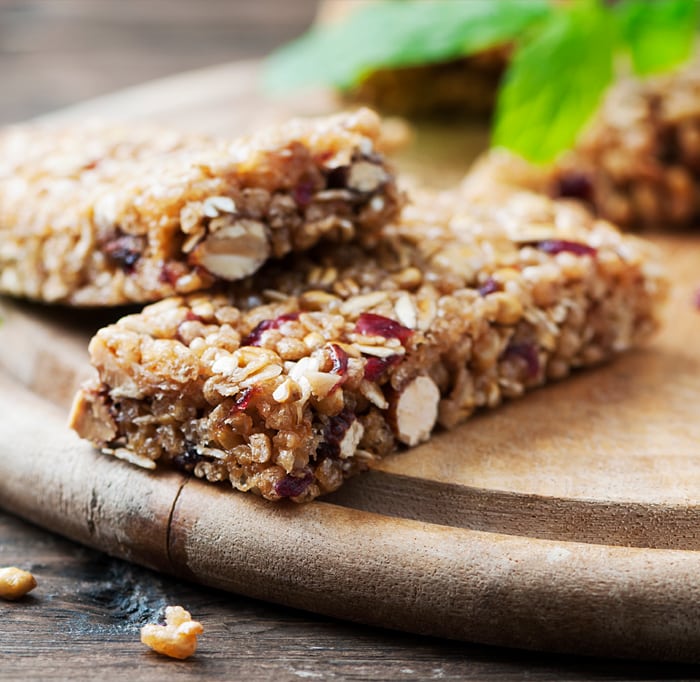
The rise of clean label
in consumer’s expectations
Today, consumers are more and more health-conscious and environment friendly: they are increasingly inquisitive about the natural origin, traceability, and nutritional or sustainability impact of the food they buy and eat.
The expectation for transparency and simplicity explains the significant growth of the “free-from” claim.
→ 74% of US consumers want more transparency in food and drink ingredients,
→ 53% of Chinese people pay attention to additives and preservatives in food and drink labels
→ 33% of Europeans are avoiding the word “artificial” on a packaging.
This strong requirement for naturality and clarity is guiding the clean label and clear label trends, slowly becoming the industry standard.
Clean Label, moving beyond the ingredient list
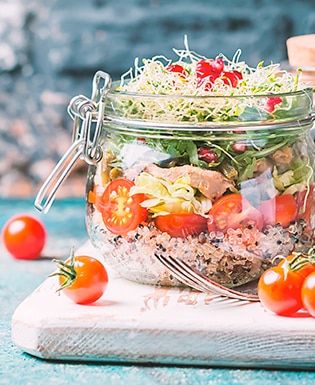
Clean label is defined as a clear, understandable declaration for the consumer. Therefore, a product is considered as clean label when it consists of recognizable ingredients, without artificial additives. “Less is more” quite clearly summarizes the clean label concept.
However, understanding the ingredient list is not enough anymore.
Clean Label is evolving to Clear Label.
Customers expect more transparency on the origin and on the process, to trust what they eat. Customers want to understand the impact the product will have on their health and the environment.
BIOSPRINGER is a trademark and it does not imply systematically that the product is organic according to EU Regulation 2018/ 848, the status of each product supplied should be checked on the technical documentation.
Biospringer’s yeast extract, a clean label ingredient
Natural flavor ingredients like yeast extracts are great tools when food manufacturers seek clean label product positioning.
Yeast extract is made of yeast, an ingredient that has been used for centuries by all civilizations to bake or to make wine. Produced by yeast fermentation, yeast extracts are natural flavor ingredients and are used in a large spectrum of food applications.
The natural origin of yeast extracts puts Biospringer solutions perfectly in line with the clean label trend. Its properties improve the overall taste of foods, and efficiently balance taste when reducing other components of a recipe such as salt, sugar, and other undesirable ingredients.
Organic,
on the rise worldwide
The organic market is growing incredibly fast: it has increased six-fold since 1999 to reach $87,3Mds USD in 2015 and nearly 9 out of 10 of global consumption of organic products is in North America and Europe.
Organic has a positive image in the consumer’s mind: 33% of consumers worldwide rate the organic attribute as an important criterion in purchasing decisions. This growth is explained by an increasing demand for naturalness and transparency. Consumers want to understand what ends up on their plate.
To meet consumers expectations, food companies have already started to adapt their production processes and ingredient sourcing for organic products. Organic certifications are independently qualified by authorized organizations following a strict regulation.
Biospringer addresses the organic market
with Springer ® Organic
In order to meet this demand for organic products, Biospringer assists its customers in creating clean and simple flavor solutions for their organic food applications by offering dedicated solutions with its natural organic flavor ingredient range.
Our organic ingredient line has been developed in accordance with the specifications of the European regulation: ECOCERT – FR-BIO-0, and American regulation: NOP. Biospringer meets the highest standards for organic processed foods.
BIOSPRINGER is a trademark and it does not imply systematically that the product is organic according to EU Regulation 2018/ 848, the status of each product supplied should be checked on the technical documentation.

Biospringer Organic range for
extensive application possibilities

From soups and stocks, to snacks and seasonings, the performance of Biospringer’ Organic solutions benefit a wide range of organic food applications and is suited for vegetarian and vegan products.
Springer ® Organic is our range for organic yeast extracts for use as base-notes. The savory profile develops a long-lasting flavor that improves body and mouthfeel in a wide variety of food applications.
Springer ® Reveal is a line of inactive dried yeasts. They are perfect flavor carriers for seasonings.
Biospringer organic yeast solutions also are:
- Natural origin
- Halal
- Kosher
- GMO-free
- Animal-free
- Allergen-free
Label declarations: organic yeast extract or organic dried yeast (According to EU regulation 1334/2008/EC)
Vegan and Vegetarian diets,
becoming mainstream
Due to an increasing concern for health, environment and ethical topics, consumers have found a way to address these concerns in one place: by changing their diets. Nearly 64% (Nielsen Global Ingredients and Dining Out Trends – August 2016) of the world population follow a diet that limits or bans the consumption of specific ingredients and types of foods.
Meat and animal-based products are not an exception. Consumers are lowering or eliminating their consumption of meat in place of vegetables, fruits and plant-based proteins while embracing Vegetarian, Vegan or Flexitarian diets. 14% of consumers worldwide identify as Vegetarian, and 6% as Vegan.
What does this alternative diet imply? “Vegetarian”, “vegan” and “flexitarian” deserve a clear definition:
- The Vegetarian diet excludes meat and fish
- The Vegan diet excludes any food of animal origin
- The Flexitarian diet involves a drastic decrease of meat and fish consumption, only eaten on rare occasions
For tasteful vegan and vegetarian products, use Yeast Extract
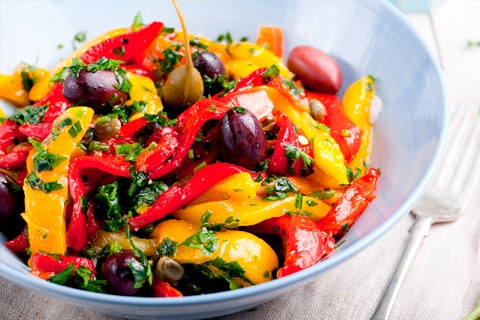
These new eating habits provide interesting innovation opportunities for the food industry. The challenge then becomes developing flavorful vegetarian or vegan products and fulfilling nutritional needs. Ingenuity in formulation and innovative ingredients are needed to develop interesting flavors with meaty, veggie and cheese profiles in meat analogues.
Yeast extract is a natural flavor ingredient and comes from a natural source – fresh yeast. It is an animal-free ingredient that fits the vegan and vegetarian diet guidelines. Its rich blend of natural components offers a great variety of notes, from meaty to vegetable, or cheesy notes, allowing to diversify and improve vegan and vegetarian food taste profiles.
Biospringer Culinary Center’s expertise and experience in building taste will support you in developing rich and delicious vegetarian and vegan products.
Biospringer contributes to vegan and vegetarian innovation
Biospringer offers a wide range of solutions to design better-for-you and flavorful vegan and vegetarian products:
- Springer ® Reveal yeast extract range delivers body and subtle savory tastes which makes it a valuable ingredient as a rich flavor base
- Springer® Umami yeast extract range contains a naturally high level of nucleotides for a strong umami taste. The Umami intensifies the sensory profile and highlight other tastes and flavors in the recipe.
- Springer ® Signature, a range of yeast based flavors, provide specific notes, including meat profiles such as chicken, beef, grilled or smoked meat. Springer ® Signature range also includes a cheese profile. For dairy free applications, our Springer ® Signature® Cheese will bring delicate Emmental or Parmesan notes to vegan cheese-flavored products.
- Springer ® Reveal, is a line of inactive dried yeasts and is a vegetarian and vegan source of proteins.

New food trends,
new taste challenges
Food product formulation requires the use of functional ingredients. A large number of reformulations are driven by consumers’ food trends looking for healthier and more sustainable, yet flavorful foods.
Low-sugar, plant-based or vegetarian diets are examples of challenging trends for food manufacturers. These trends involve the reduction or replacement of key ingredients like sugar or animal proteins.
To compensate for the impact on taste or texture, food manufacturers adapt and innovate by using alternative solutions such as sweeteners or plant proteins. The alternative ingredients can bring unwanted off-notes that need to be masked to develop flavorful products.
Taste properties of yeast extract make it a valuable natural origin ingredient to mask undesirable notes.
Two paths to mask off-notes
Off-note masking requires a strong expertise in formulation mastered by the Biospringer Culinary Center. Masking solutions can differ based on the nature of the off-note and the finished product. There are two types of masking that can be combined for more efficiency:
- Functional masking prevents the detection of unwanted notes. The effect is driven by the addition of an ingredient that will either intensify a flavor which is already present or prevent the identification of the molecule responsible for the off-note.
- Aromatic masking consists in covering the unpleasant note with a new aromatic component that will modify the overall taste profile and make it more pleasant.

Masking off-notes with
Biospringer Yeast-based solutions

By combining their ingredient expertise and product formulation, Biospringer offers cost-efficient and customized yeast extract-based solutions to mask unpleasant off-notes:
- Springer® Umami yeast extract masks unpleasant and bitter notes due to the natural nuclotides that bring umami.
- Springer ® Reveal and Springer ® Signatureare yeast based flavors ranges that can mask off-notes with subtle base notes
Biospringer Culinary Center provides efficient solutions to answer your specific needs. Due to their unique taste properties, our products mask off-notes in various food and beverage applications such as vegan and vegetarian products, sweet products or processed meats.









